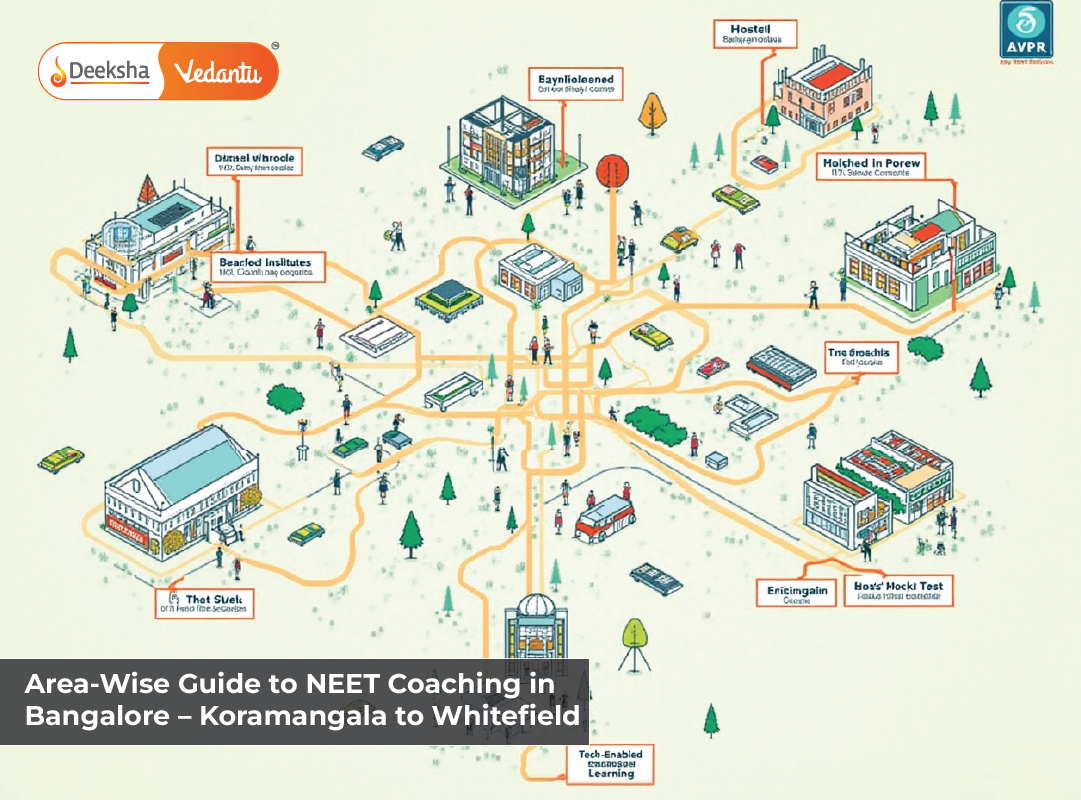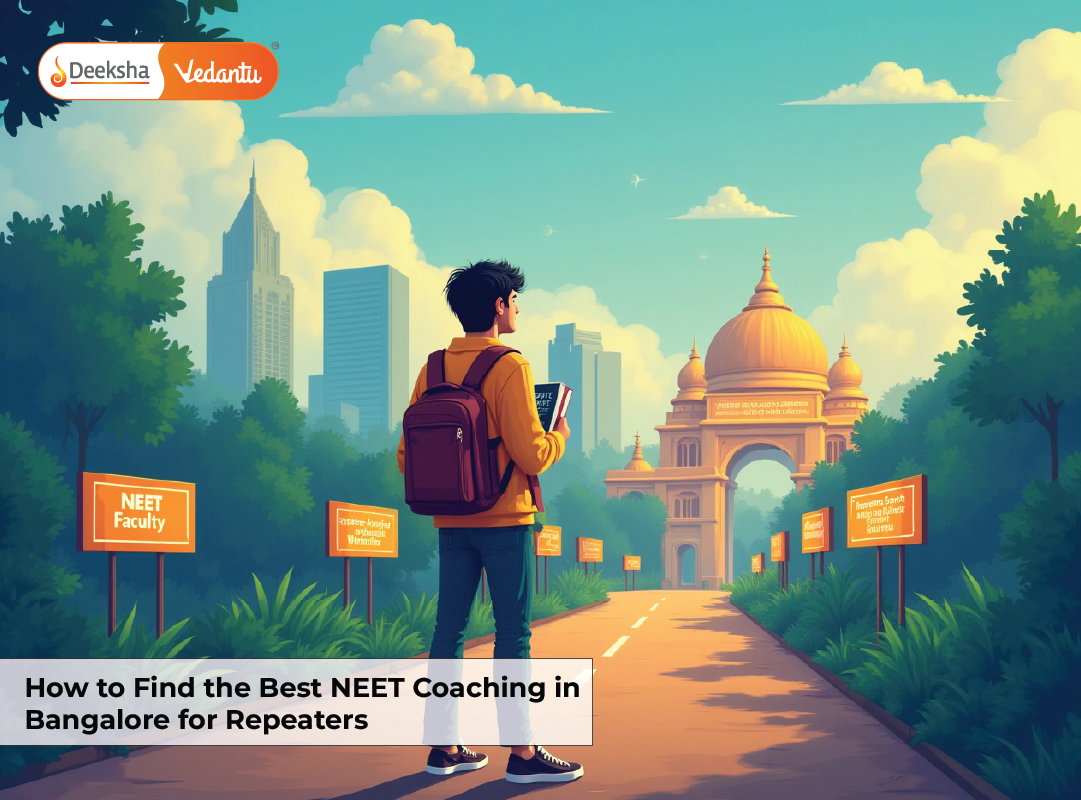Introduction
Starting PU college is a major milestone—and for many students, it also marks their first experience living away from home. Adjusting to residential college life brings new responsibilities, unfamiliar routines, and the challenge of managing independence. While the idea of moving into a hostel can be exciting, it can also feel overwhelming initially.
At Deeksha Vedantu, we understand the importance of supporting students through this transition. Residential life, when embraced properly, offers incredible opportunities for self-discovery, personal growth, and lifelong friendships. In this guide, we provide practical advice and actionable tips to help first-year PU students settle into campus life and thrive academically, emotionally, and socially.
Preparing for the Move
Before stepping into residential college life, it’s helpful to prepare both mentally and practically. A smooth transition begins with realistic expectations and thorough planning.
Checklist for Packing:
- Daily wear, college uniforms, and extra innerwear
- Toiletries, grooming kits, and personal hygiene items
- Bedsheets, pillow, blanket, towels, and mattress protector
- Flip-flops, formal shoes, and slippers for hostel use
- Notebooks, subject-specific textbooks, stationery supplies, water bottle, and study lamp
- Emergency medicines, allergy-specific prescriptions, and a basic first-aid kit
- Identification documents, college ID card, admission receipts, and photos
Mental Preparation:
- Visualize your new environment and embrace it as a learning space
- Talk to seniors or alumni who’ve lived in hostels before
- Reflect on your goals and how this experience can help you grow
- Be ready to meet people from different cultures and learn tolerance and adaptability
A positive attitude will make it easier to adjust to new surroundings and routines.
Commerce PU courses at Deeksha Vedantu
Setting Up a Routine
A consistent daily routine provides the foundation for productivity, self-discipline, and mental clarity. Students who follow structured schedules experience less stress and perform better in academics.
Key Elements of a Routine:
- Set a fixed wake-up and bedtime that gives 7–8 hours of sleep
- Align study times with peak concentration periods (e.g., early mornings or evenings)
- Schedule fixed meal times and include healthy snacking in between
- Dedicate time for self-care: shower, skincare, and hygiene
- Include short breaks, physical activity, and wind-down time in the evening
- Make weekend goals for laundry, hobby time, and weekly reviews
Maintaining a routine helps students adjust quickly, avoid procrastination, and balance work with leisure.
Managing Academics Effectively
Academics remain a central focus of residential college life. Without parental oversight, students must take responsibility for their studies and stay consistent.
Tips for Academic Success:
- Use a study planner or apps like Notion or Todoist to organize tasks
- Set subject-wise weekly goals and revise key concepts regularly
- Join or create study groups to solve doubts collaboratively
- Take handwritten notes for better retention and review them weekly
- Refer to NCERT books and Deeksha Vedantu notes for clarity and exam preparation
- Use mnemonic devices and flashcards for memorization-heavy subjects
Deeksha Vedantu supports academic success through dedicated doubt-clearing sessions, weekly tests, and teacher mentoring.
Science PU programs offered by Deeksha Vedantu
Building Positive Peer Relationships
Hostel life is a shared space, and learning to coexist respectfully enhances emotional maturity. Good peer relationships lead to a stronger support system and happier campus life.
Social Tips:
- Initiate small conversations with roommates and classmates
- Respect cultural, regional, and personal differences
- Practice good roommate etiquette—keep noise low, share space fairly, and clean up regularly
- Avoid gossip, unhealthy comparisons, and negative peer pressure
- Engage in group events like games, birthday celebrations, or college fests
Social bonding provides comfort, promotes collaboration, and fosters emotional well-being.
Independent Living Skills
Residential life encourages students to become self-reliant. From managing daily chores to budgeting money, these skills prepare students for life beyond college.
Skills to Learn:
- How to do your own laundry and fold/store clothes
- Labeling your items and organizing limited storage space
- Preparing simple snacks or beverages if allowed
- Setting up and sticking to a weekly expense plan
- Handling minor illnesses and reporting to the warden or medical center
Deeksha Vedantu provides guidance through orientation sessions, wellness mentors, and hostel staff support.
Staying Connected with Family
Maintaining emotional connections with family provides comfort and reassurance. While students learn independence, staying grounded in family bonds eases emotional transitions.
Tips to Stay Connected:
- Fix specific days and times to call or video chat with parents or siblings
- Share academic updates, achievements, or daily highlights
- Send photos of your hostel room, friends, or events to stay connected
- Journal your thoughts if you miss home and reflect on your journey
Balancing emotional well-being while embracing independence is key to healthy adaptation.
Extracurricular Engagement and Campus Life
Participating in extracurricular activities helps students develop confidence, leadership, and interpersonal skills. Hostel students should take advantage of college-level opportunities.
Activities to Explore:
- Join music, art, dance, or drama clubs
- Compete in sports, debates, or quiz contests
- Volunteer for student council, event planning, or community outreach
- Attend motivational talks, seminars, and cultural events
Deeksha Vedantu offers a vibrant campus life with ample opportunities for creative, athletic, and leadership pursuits.
Challenges vs. Solutions in Residential Life
| Common Challenge | Practical Solution |
| Homesickness | Stay in touch with family, make new friends, stay engaged |
| Time mismanagement | Use planners, alarms, and weekly scheduling |
| Food or lifestyle change | Adapt gradually, communicate preferences with staff |
| Academic pressure | Follow a study routine, seek help early, use learning apps |
| Roommate conflicts | Address calmly, set boundaries, involve warden if needed |
Health, Hygiene, and Wellness
Physical and mental health are crucial to success. A healthy student can study better, sleep better, and interact more positively with peers.
Wellness Tips:
- Drink 2–3 liters of water daily to stay hydrated
- Eat a balanced diet with fruits, vegetables, and proteins
- Avoid overconsumption of packaged snacks or energy drinks
- Sleep for at least 7–8 hours per night
- Practice yoga, stretching, or jogging around campus
- Use mental health support if feeling overwhelmed
Deeksha Vedantu promotes wellness through health workshops, mindfulness sessions, and peer mentoring.
Safety and Discipline in Hostel Life
A disciplined and secure environment ensures students can focus on growth without distractions.
Safety Measures:
- Follow hostel rules and respect curfews
- Inform wardens when leaving campus
- Keep emergency contacts saved and memorize key numbers
- Lock cupboards and keep valuables safe
- Report suspicious behavior or safety concerns immediately
Deeksha Vedantu ensures safety through round-the-clock security, CCTV monitoring, and vigilant hostel management.
FAQs
How long does it take to adjust to hostel life?
Most students begin feeling comfortable within 2–4 weeks. Having a routine and supportive peers helps.
What if I’m feeling homesick?
Reach out to counselors, call home regularly, and talk to peers. It’s okay to feel emotional—don’t isolate yourself.
Can I focus on studies in a hostel environment?
Yes. With proper planning and the right mindset, hostels can be great places for disciplined study.
What should I do if I face conflict with a roommate?
Communicate respectfully. If needed, speak with the warden or a faculty mentor.
Does Deeksha Vedantu have hostel support systems?
Yes. From orientation to mentoring, we provide academic, emotional, and logistical support for all residential students.
Is it okay to bring electronic gadgets to the hostel?
Yes, but use them responsibly and according to hostel guidelines. Avoid distractions.
How do I deal with exam stress in a hostel?
Form a study group, speak with mentors, and maintain a balance of preparation and rest.
Conclusion
Adapting to residential college life is a transformative experience. While the shift from home life to hostel may come with challenges, it also brings immense opportunities for growth, independence, and resilience. From managing academics and making friends to exploring campus life and maintaining well-being, the journey is rich with life lessons.
At Deeksha Vedantu, we believe in nurturing students with care, structure, and a growth mindset. We offer an ecosystem that promotes academic success, emotional health, and personal discovery. With the right support, every student can flourish in residential college life and look back on it as one of the most cherished phases of their educational journey.
Table of Contents















Get Social